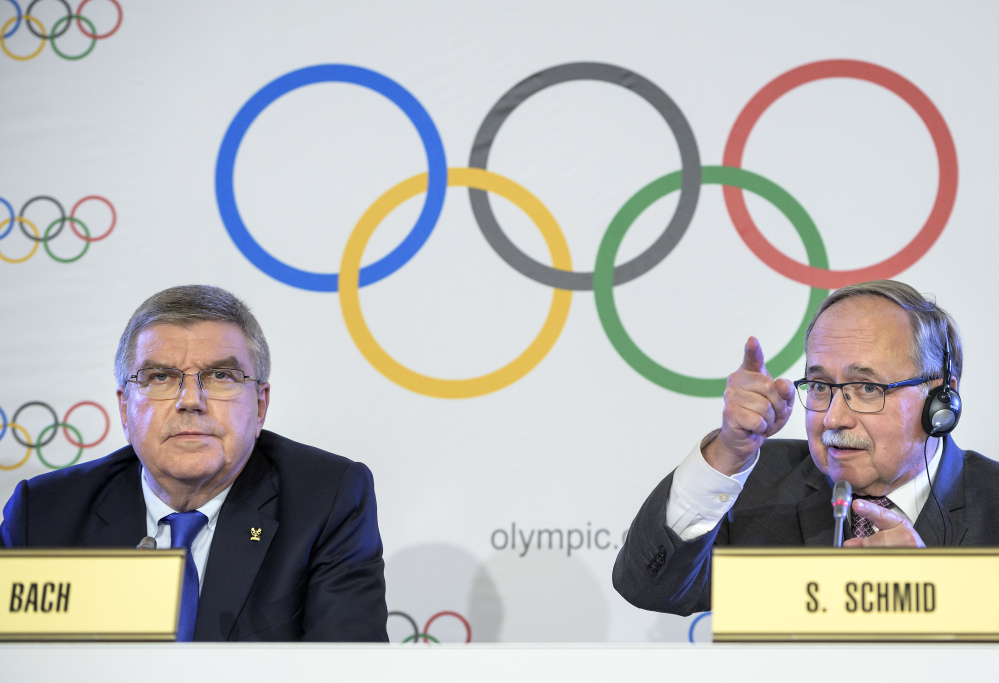The International Olympic Committee’s decision to ban Russia from the 2018 Winter Games in South Korea will certainly enrage and disappoint many Russians. They may point out, correctly, that sports doping and cheating exist in the West, too — witness Lance Armstrong. But what’s important this time, as multiple investigations have revealed, is that doping in Russia was a state-sponsored activity, under the sports ministry and with help from the Federal Security Service, a successor agency to the Soviet KGB. The unprecedented action by the IOC was justified.
Investigations have shown Russian cheating to be widespread. Richard McLaren’s report last December for the World Anti-Doping Agency, based in part on evidence obtained from the computer of a Russian whistleblower, found that Russia had carried out an “institutional conspiracy” involving both summer and winter athletes, the Ministry of Sport and the FSB “for the purposes of manipulating doping controls.” Moreover, the “systematic and centralized cover up and manipulation of the doping control process” extended from the London 2012 Summer Games to the Sochi 2014 Winter Games, and for a while after that, too.
Perhaps the most remarkable and brazen corruption took place at Sochi, the extravaganza that President Vladimir Putin hailed as a symbol of Russia’s resurgence. Unbeknownst to the world at the time, the Russian government ran a scheme to tamper with the urine samples of Russian athletes, including those who had been given a cocktail of steroids. According to McLaren, at a Sochi laboratory, dirty samples were passed through a “mouse hole” where they were swapped for clean ones. In the “well-oiled systemic cheating scheme,” if any athletes using drugs to cheat were not shielded from detection by the various field mechanisms Russia had put in place, they were protected by a “final fail-safe mechanism” that would falsify their test results. McLaren found evidence that the deputy sports minister was in charge of the process.
Russia’s Olympic gold medals at Sochi have been revised in light of the findings from 13 to nine; silver from 11 to four; bronze from nine to eight. All told, McLaren reported that more than 1,000 Russian athletes were either involved in or benefited from the coverup and manipulation of the doping control process. In South Korea, individual Russian athletes who are clean, based on “strict conditions” and a review by a special panel, are being invited as “Olympic Athlete from Russia” with a uniform bearing that name. There will be no Russian flag or anthem. This seems a reasonable way to avoid penalizing innocent athletes. Putin said Moscow will not boycott the games.
In Russia, the IOC action may provoke howls of protest that the West is maltreating Russia to gain some advantage in a new Cold War. But this would be quite wrong. The Russian cheating was homemade, and Russian fans ought to be angry at their leadership for such reckless disregard for the integrity of international sport.
Editorial by The Washington Post
Send questions/comments to the editors.



Comments are no longer available on this story